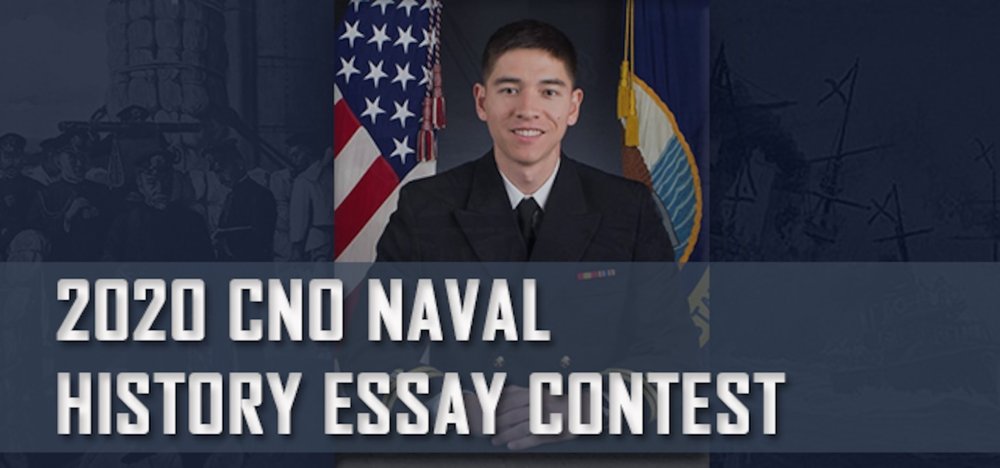Each year, the Chief of Naval Operations (CNO) invites Navy personnel to compete in his Naval History Essay Content. Entries must thoughtfully apply past lessons to the Navy’s current focus on establishing and maintaining maritime superiority.
This year, the CNO was specifically interested in essays that address efforts by China and Russia to use their economic, political and military powers to compete for commercial, geostrategic, political and military advantage and access.
In October, Navy judge advocate Lt. George Onoyama Hageman was awarded second place in the Rising Historian category of the CNO’s 2020 essay contest. His essay is titled, “Battle of Tsushima: The First Naval Battle of the 21st Century.” Hageman currently serves as the assistant staff judge advocate at Naval Special Warfare Group TEN in Coronado, Calif.
“My wife had previously teased me for spending my free time writing essays, so naturally I teased her back the moment I found out; then I deposited the entire cash prize into my massive student loan debt,” Hageman said.
Essays were judged on relevance of the topic; readability; thoroughness of research; quality of insights based on historical events; and the uniqueness or novelty of the ideas presented. The judging committee was composed of naval historians from the U.S. Naval Institute, U.S. Naval Academy, Naval War College, Naval Postgraduate School, Naval History and Heritage Command, and the Office of the CNO.
Hageman chose to write about the Battle of Tsushima, which he considers the decisive engagement of the Russo-Japanese War. His great-grandfather had served in the war, so the topic held a meaningful connection for him.
“The Battle of Tsushima was notable in four main ways,” said Hageman. “First, it was the debut of a new world power – Japan – and the shocking demise of an old one – Russia. Second, it demonstrated how difficult it is to fight a regional conflict against a regional power with a geographically dispersed two-ocean Navy. Third, it showed how a new power could harness new technological advances to completely change the balance of power. Fourth, it showed how old paradigms of naval customs and international law can crumble when a new power joins the game.”
“Each of these four lessons has profound relevance for the United States Navy in the 21st century, specifically as it relates to China,” he added.
Hageman earned a Bachelor of Arts in Government from Harvard University in 2012. In 2014, he received a Master of Public Policy from the University of Tokyo, and he graduated from Harvard Law School in 2017. He is licensed to practice law in Washington.
Hageman received his commission through the Student Program in May 2016. He graduated from Officer Development School in September 2017 and Naval Justice School in December 2017. He previously was a first-tour judge advocate at Region Legal Service Office Southwest, completing rotations in Command Services, Legal Assistance, and Trial.
Looking ahead, Hageman says that he will continue writing essays, but he is unsure when another would see the light of day. Bravo Zulu!
